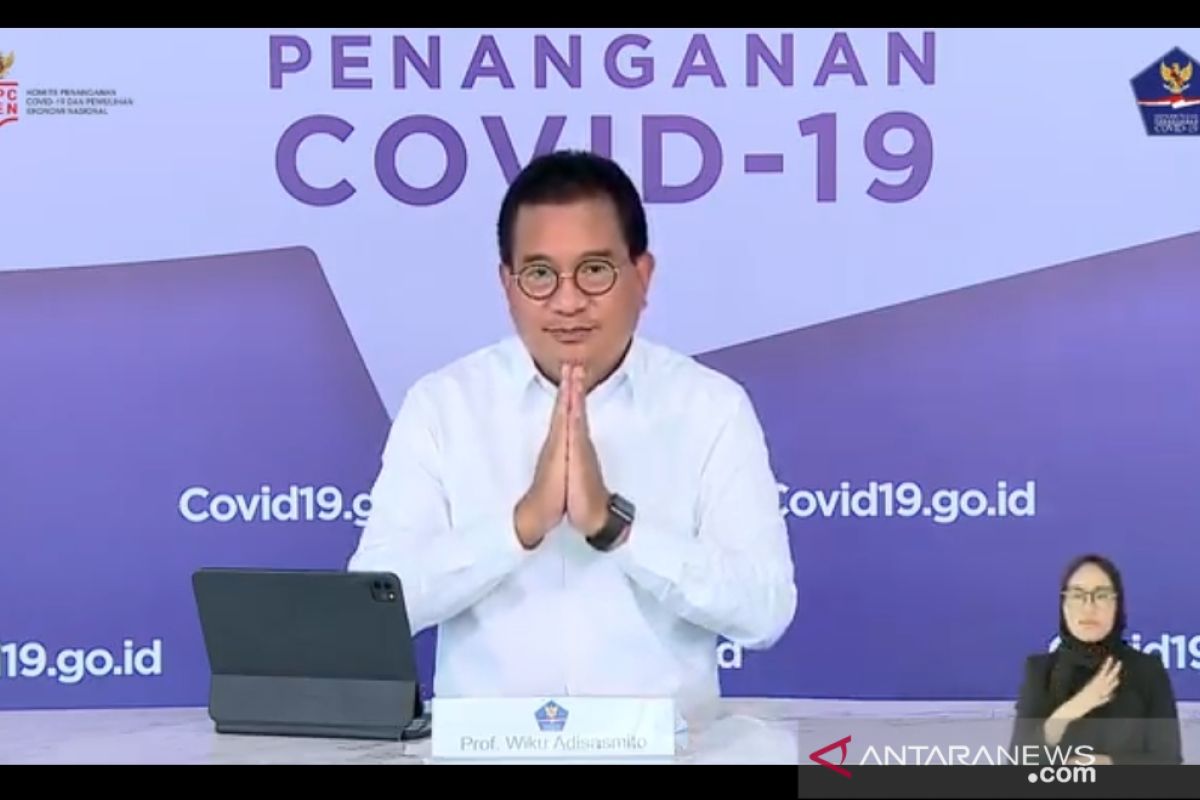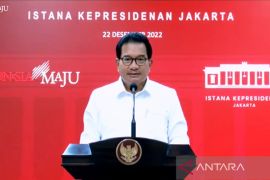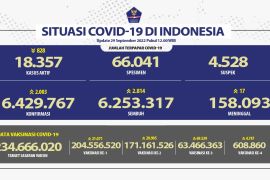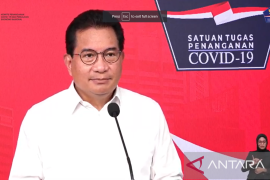"Indonesia has now experienced two spikes in January and July 2021," Adisasmito stated in a press release received here, Wednesday.
Currently, the world is experiencing a third spike in terms of the number of COVID-19 cases, thereby necessitating Indonesia to stay vigilant by studying the pattern of increasing cases in the country, which tends to be slower than the increase in cases worldwide.
"In the second wave pattern where there is a three-month gap, we need to take precautionary measures since in the next three months, we will enter the Christmas and New Year holiday period," he noted.
The surge in cases in Indonesia in July 2021 was owing to internal factors and not due to rising global cases or coming from other countries, the professor explained.
Some of the internal factors that caused the surge in cases and the spread of the virus were the high domestic mobility and social activities that coincided with the Eid al-Fitr homecoming period and the public's neglect of health protocols.
Furthermore, the first spike in Indonesia in January 2021 was attributed to the 2020 Christmas and 2021 New Year holidays that coincided with the world's first spike.
"However, the world experienced the second wave in April 2021," he remarked.
At the time, the world experienced the second wave, while Indonesia was at its lowest weekly case count. On the other hand, when Indonesia's cases increased in July, the world's cases declined and surged again until it reached the third spike.
From the comparison of spike patterns, the surge in Indonesia last July did not contribute to the global cases. This is since at that time, the world was experiencing a decline. On the contrary, the spike in cases at the global level and several countries had no significant impact on the number of cases in Indonesia.
"This can occur through strict efforts in securing the country's borders. We are optimistic that the number of imported cases from countries experiencing a surge can be kept to a minimum," Adisasmito stated.
He also advised Indonesians to be more resilient while facing COVID-19.
"It should be understood that the population mobility and the public's ignorance of health protocols are the biggest contributors to the spike in the number of cases," he added.
Related news: Ministry's 70-percent vaccination target against third wave
Related news: Health protocols crucial to prevent third coronavirus wave: task force
Related news: Indonesia pursues narrowing gap in COVID-19 vaccine distribution
Translator: Andi Firdaus, Resinta S
Editor: Sri Haryati
Copyright © ANTARA 2021











